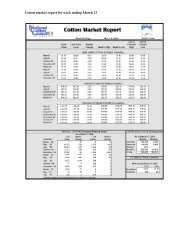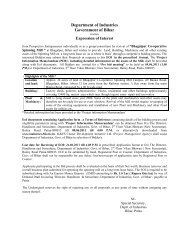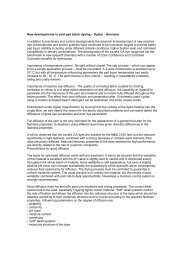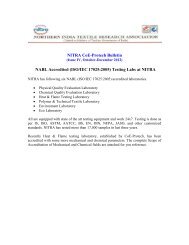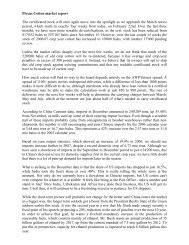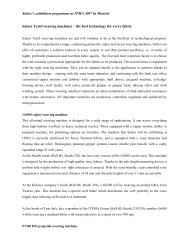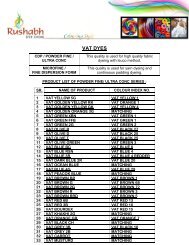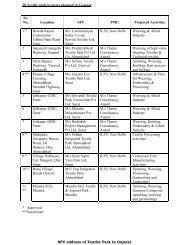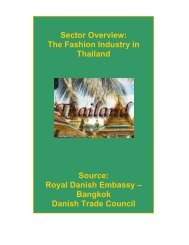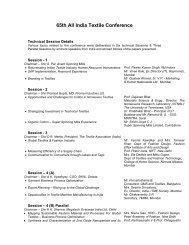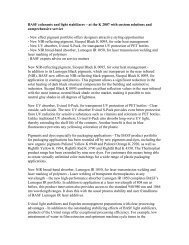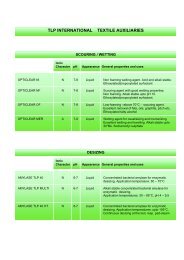Create successful ePaper yourself
Turn your PDF publications into a flip-book with our unique Google optimized e-Paper software.
Appendix Two<br />
The following micro-case study indicates that price is dictating the purchasing motivation<br />
of retailers and brand managers, even when the merchandise is a localised brand. While<br />
undertaking field research in April 2006, I discovered a range of South African rugby<br />
merchandise being retailed in a clothing shop in Durban, all made in China.<br />
RUGBY MERCHANDISE NOT PROUDLY SOUTH AFRICAN<br />
A collection of the Sharks (KwaZulu-Natal rugby team) clothing merchandise is not “proudly South<br />
African”. The merchandise, which includes fleece-throws, caps and beanies sporting the famous<br />
Sharks logo are all made in China. The labels attached to the merchandise have details of SA<br />
Rugby as well as a Vodacom logo, which are the sponsors.<br />
Vodacom and the retailer Pick ‘n Pay link to this range of clothing is of concern. It is<br />
common knowledge that South Africa’s clothing industry is in crisis due mostly to the influx of<br />
Chinese clothing imports flooding the South African market, creating a situation where many<br />
clothing firms have had to close down, retrench workers or alternatively casualise their<br />
labour.<br />
Why would Vodacom and Pick ‘n Pay, both being members of Proudly South Africa and<br />
punting a positive reputation for social responsibility, endorse these products? Is price the<br />
deciding factor governing the importation of this specific range of merchandise from China?<br />
This range is marketed towards a particular clientele that, possibly, would not object to<br />
paying a little more if they knew that their purchase was supporting the local industry.<br />
Vodacom’s Corporate Social Investment programme states that “it’s about building trust<br />
and relationships, so that people get excited about Vodacom because they see how the<br />
company has helped develop their communities.” Pick ‘n Pay claims that they “strive to fulfil<br />
our economic, social and environmental responsibilities … in supporting local communities.”<br />
Further research reflects Pick ‘n Pay’s stated commitment to selecting suppliers who<br />
demonstrate “product quality and respect for labour.”<br />
Retailing clothing brands made in China such as the Sharks merchandise does not align with<br />
Pick ‘n Pay’s philosophy of ensuring that the value chain is ethical. China’s clothing industry<br />
is reputed for its abuse and exploitation of labour so as to produce merchandise that is<br />
cheap and appealing to global brand and retail buyers.<br />
The Sharks rugby management, Vodacom and Pick ‘n Pay need to review their creative<br />
buying and marketing strategies. There are many small clothing enterprises based in the<br />
informal economy within KwaZulu-Natal that could produce the Sharks merchandise, and<br />
119



